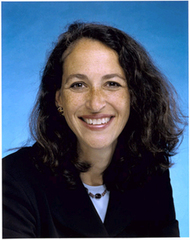China produces more of the active ingredients that go into global meds than any other country, but its oversight of the burgeoning business has often fallen short. For nearly two years, efforts by the FDA to expand its own oversight in the country have been thwarted, an issue FDA Commissioner Margaret Hamburg hopes to resolve during a visit there this week to meet with Chinese and other global regulators.
 |
| FDA Commissioner Margaret Hamburg |
"We're heading into the homestretch," she said during a call on Friday of the FDA's nearly two-year marathon to build its FDA office in China, Reuters reports.
The FDA intends to nearly triple to 33 the number of employees it has working in China from just 13 right now, Reuters reports. Twenty-six U.S. civil servants and 7 Chinese nationals will handle both drug and food oversight. Nine agency employees are currently awaiting paperwork to get into the country, an FDA spokesperson told the news service.
Hamburg is headed to China to attend the International Summit of Heads of Medicines Regulatory Agencies, but while there said she will meet with Chinese officials about the work their two agencies have been doing to ensure drug safety. She told the China Daily that cooperation has been building and that the FDA has trained more than 1,000 Chinese inspectors about what it expects from "drugs and food coming from China."
In February, Hamburg made her first visit to India, a country that accounts for 40% of the generic and over-the-counter drugs used by U.S. consumers. The FDA has been expanding its office there as well, causing some tension as that led to more warning letters and plant bans for Indian drugmakers, including some of its largest. But while India has a well established industry and regulatory process, China is still building its oversight agency.
Many non-Chinese companies rely on brokers who know the language and the regulations to help them source their APIs, a situation which can make it difficult for them to avoid bad players. One of the gaping holes that the U.S. found in China's process was that while the China FDA regulated pharmaceutical manufacturers, it did not have authority over chemical makers. It is their APIs which were being used in many drugs. In fact, the FDA opened its office in China after a 2008 incident in which tainted crude heparin from China made it into the U.S. supply, leading to the deaths of dozens of U.S. dialysis patients.
That difference in approach has been an ongoing topic of discussion between the agencies, Hamburg told the China Daily. "There may be changes in that regulatory arrangement," she said. "We think that API is a critical component for which the CFDA should play a more active role."
- read the China Daily story
- get more from Reuters